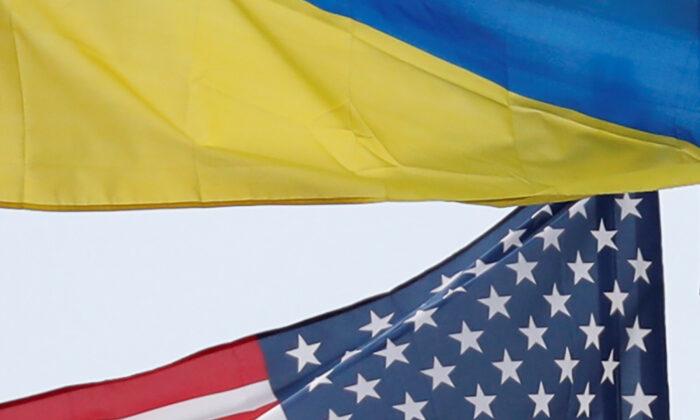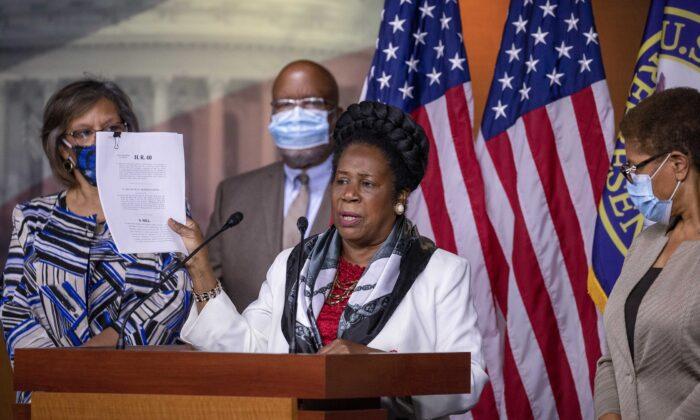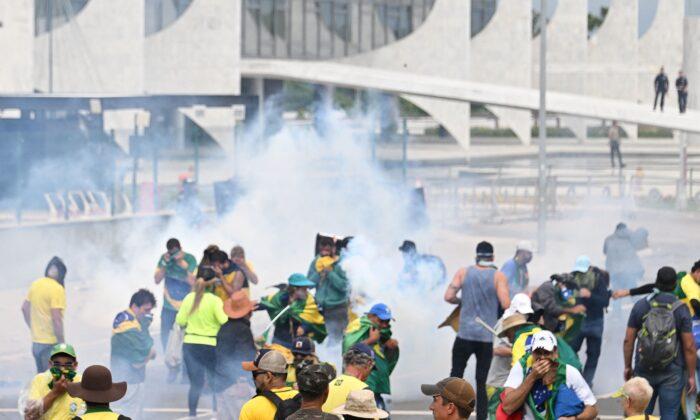“It is necessary to abandon the Cold War mentality,” said Xi. Instead, the European continent must form a “balanced, effective and sustainable European security mechanism through negotiation.”
It sounds like the CCP leader is calling for a type of European architecture to ensure state sovereignty and international peace across the entire continent, from Lisbon to Moscow.
Don’t be fooled by Xi’s misleading terminology.

Instead, Beijing laments the fact that Moscow was forced into such a position by careless Western foreign policy that disregarded the country’s legitimate security interests. This is an important point.
China is actively working to chip away at the liberal democratic order that is unilaterally guaranteed by the United States. Beijing’s most immediate foreign policy goal is to secure its regional hegemony in Asia, while simultaneously making inroads to facilitate its long-term desire to increase its international influence.
Putin shares the CCP goal of eroding U.S. overseas power. The Kremlin seeks to facilitate a multipolar world in which large regional powers, such as Russia and China, have control over their geographic proximity. Beijing supports Moscow’s attempts to create a cordon sanitaire from an encroaching U.S.-led military (and economic) alliance.

Such sanctions, however, would have significantly impacted U.S. energy prices as well. Xi and Putin both perceive electoral politics to be a weak spot of their American adversary, and are certainly aware that the United States will be having midterm elections this upcoming fall. Whether the Biden administration has refused such sanctions because of a genuine desire to insulate the U.S. populace from economic hardship, or due to the approaching elections—likely a combination of both—Washington’s allies in Taiwan undoubtedly feel less comfortable with their current security situation.
When Xi professes the need to move away from the confrontation mindset of the Cold War, he is saying that the West needs to avoid antagonizing Russia militarily and respect its sphere of influence. A failure to do so may justify a military response, as evidenced by Beijing’s refusal to condemn Russian aggression.
The population of China is nearly 10 times larger than that of Russia’s, and it is not hard to believe that at some point in the future Beijing may set its sights on the vast expanse of sparsely populated, resource-rich Siberia.
As to Xi’s reiteration of the need to “firmly uphold the international system with the United Nations at its core and the international order based on international law,” remember that China’s debt trap BRI continues to increase Beijing’s influence in countries across the world. Easy access to Chinese capital—usually by less than financially responsible countries, not to mention the levels of corruption in many of the ruling regimes—means that the CCP increases its ability to exert influence on policy agendas around the world, at least in some degree. This is important when you consider the one-country, one-vote status of the U.N. and other multilateral institutions as well.
The escalating situation in Ukraine is a tragedy, and certainly deserves the focus of U.S. foreign policy decision-makers; however, China’s handling of the crisis must be given due attention as well. China is a country with similar extraterritorial ambitions as Russia. Consider that it also perceives the government of a region that it shares a historic relationship with as illegitimate, and a puppet of the United States.
The geopolitical visions of the world that are currently emanating from Beijing and Moscow share certain similarities, and both would certainly like to see a reduced U.S. global position. China’s refusal to condemn Russia, however, provides direct confirmation that both believe large-scale military invasion can be justified to secure its interests.
That means that as soon as the CCP calculates that it can seize Taiwan or other disputed territories without igniting a large-scale conflict or even severe economic backlash, it probably will. Even with everything else going on in the world, the United States must be thinking about this fact right now.





